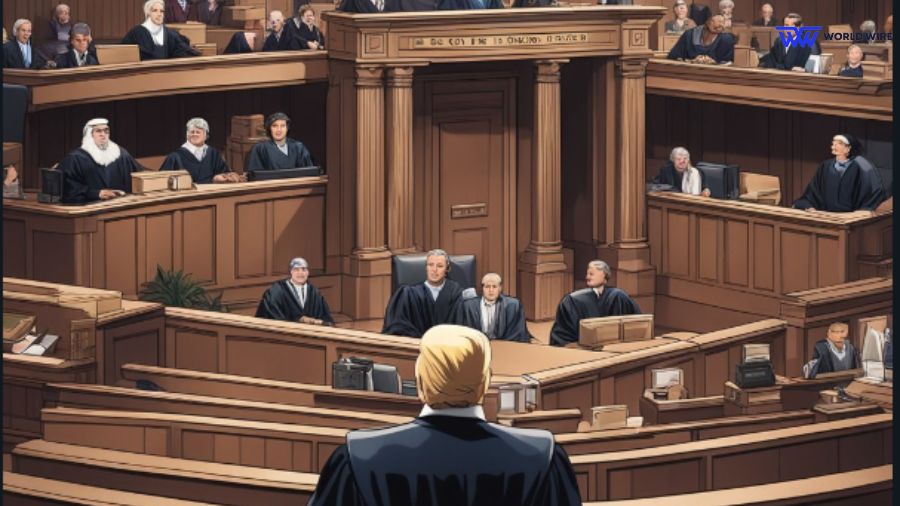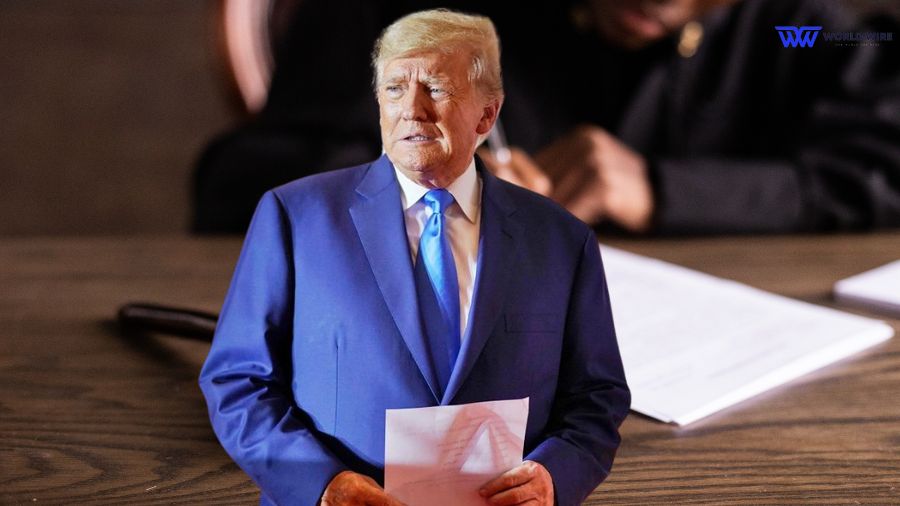A recent legal development has captured the nation’s attention: Former President Donald Trump’s request to dismiss charges related to classified documents was denied.
The case, rooted in allegations of mishandling sensitive information, underscores the delicate balance between national security and presidential privileges.
District Judge Aileen Cannon, who was appointed by Trump, ruled against the motion to dismiss, emphasizing the legal framework governing the case.
“The Presidential Records Act does not provide a pre-trial basis to dismiss,” Cannon stated, setting the stage for a complex legal battle ahead.
The charges stem from Trump’s retention of classified documents at his Mar-a-Lago residence. These documents, spanning various national security topics, were allegedly kept unsecured, sparking concerns about their potential compromise.
Trump’s defense hinged on the Presidential Records Act, suggesting it granted him the right to possess the documents.
His attorneys argued, “Trump should have been able to have custody of the documents in question, even after he was president, due to the Presidential Records Act.” This legal stance, however, did not sway the court’s decision.
The proceedings have not been without controversy. Judge Cannon faced criticism for handling the case, particularly regarding jury instructions related to the Presidential Records Act.
In response to the special counsel’s objections, Cannon defended her approach as a “genuine attempt, in the context of the upcoming trial, to better understand the parties’ competing positions.” She clarified her stance, emphasizing the preliminary nature of her inquiry into the matter.
Special counsel Jack Smith, tasked with prosecuting the case, has been a vocal critic of attempts to dilute the charges’ severity. The legal tussle over jury instructions led to a sharp exchange, with Cannon rebuking Smith’s demands as “unprecedented and unjust.”
As the legal proceedings unfold, Cannon remains steadfast in her judicial duties, dismissing suggestions of bias. She remains open to appellate scrutiny, stating, “As always, any party remains free to avail itself of whatever appellate options it sees fit to invoke, as permitted by law.”
The case extends beyond legal arguments, touching on themes of presidential immunity and the limits of executive power.
Trump’s legal team has explored various avenues for dismissal, including claims of unconstitutional vagueness and challenges to Smith’s appointment.

Yet, each motion has met resistance, reinforcing the judiciary’s role in interpreting complex legislative acts.
The upcoming trial, whose date remains undecided, promises to be a landmark event. It tests the boundaries of the Presidential Records Act and delves into the intricate dance between executive privilege and accountability.
As the nation watches, the outcome may redefine the form of presidential powers and their post-tenure limitations.
In addition to this federal case, Trump faces other legal challenges, including charges in Georgia related to the 2020 election. Each case adds a layer to Trump’s intricate legal landscape as he eyes a return to the political arena.
The legal proceedings surrounding the former president are far from over. With multiple cases pending and potential trials on the horizon, the implications for Trump’s political future are significant.
The outcome of these cases could have lasting effects on the interpretation of presidential powers and the accountability of high-ranking officials.
Trump’s legal battles also highlight the broader political divisions in the country, with supporters and critics closely watching each development.
The cases have become a focal point in the national discourse, reflecting deeper debates about the rule of law, the limits of executive power, and the foundations of American democracy.
As the legal event continues, the court’s decisions will undoubtedly affect the political and legal communities, offering new interpretations of established laws and setting precedents that may influence future presidencies.
The balance between national security and personal freedoms, a cornerstone of American democracy, hangs in the balance, awaiting the gavel’s final verdict.
The resolution of these legal challenges will not only shape Trump’s legacy but also set important legal benchmarks for future officeholders.
As the legal and political events unfold, the nation remains gripped by the story, eager to see how it will shape the outline of American law and governance.







Add Comment